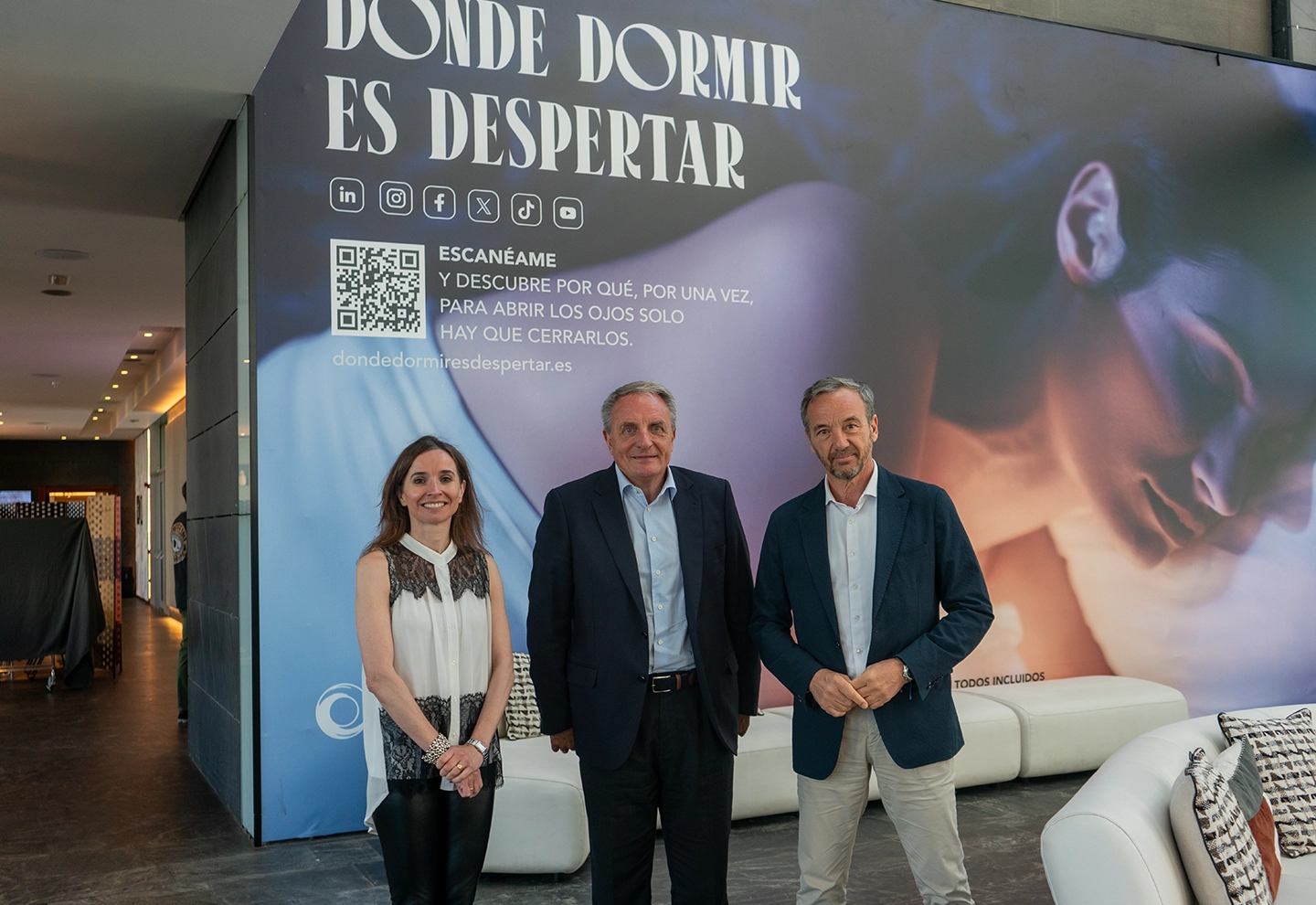
An evening with: José Guillermo Díaz Montañés
“Artiem Hotels is the dream and vision of one man: José Guillermo Díaz Montañés, founder and CEO of Artiem Hotels”
Interview by Teresa Zamora
June 25, 2024
The first time I met José Guillermo Díaz Montañés, I was set to moderate a panel in which he was participating alongside other speakers, all of whom I had to introduce.
As a diligent moderator, I had thoroughly reviewed his background in advance. Pepe’s inspiring and extensive professional career — a résumé filled with accolades, leadership roles, and achievements — made his introduction one of those that require taking deep breaths, long pauses, and lots of eye contact with the audience. When Díaz Montañés saw the card I held — practically the equivalent of a set of elaborated Ten Commandments — ready to be recited, he looked at me and said, “Are you really going to say all that about me? No, look, just say I’m a businessman.”
From that moment on, there wasn’t much more to add about Pepe. He is indeed a businessman who does far more than he says and who prefers not to boast about his accomplishments — significant milestones that inspire us to rethink and approach things differently.
“Ever since I was a kid, I wanted to be a businessman. Some kids dream of being firefighters or astronauts, but I knew my path would go elsewhere; after all, my favorite bedtime reading was Actualidad Económica.”
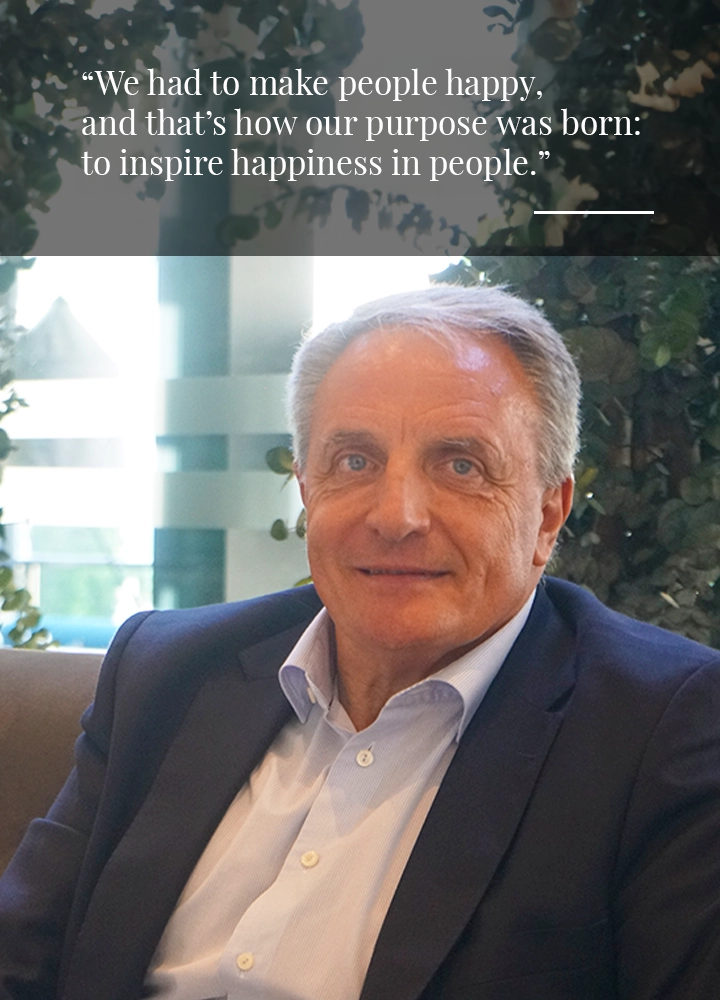
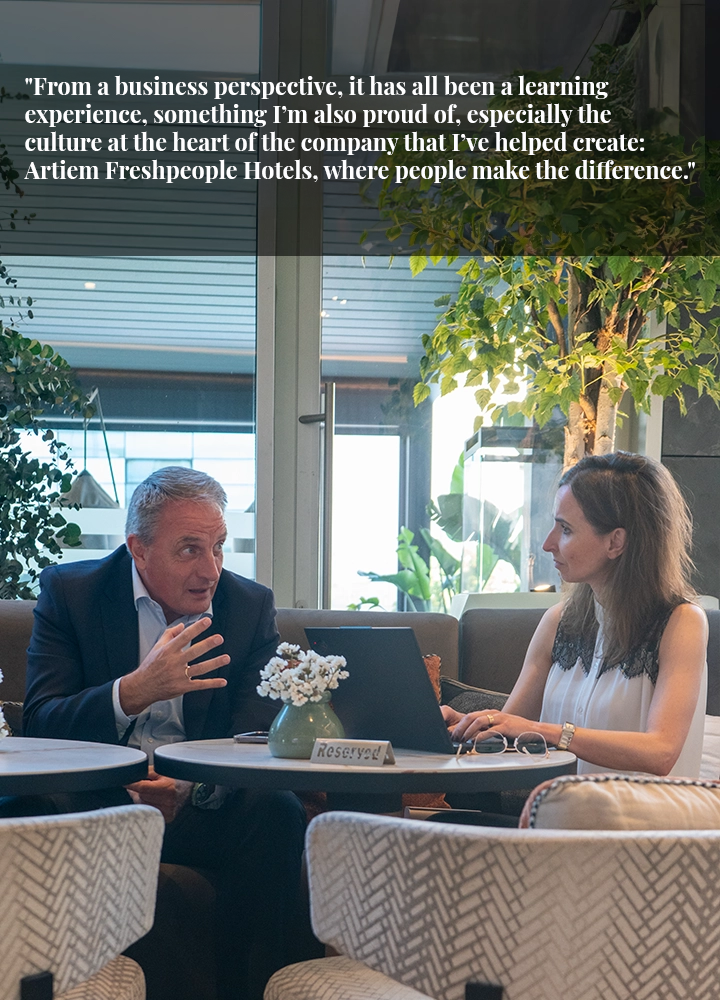
And at just 15 years old, I already understood that businesses are essential to society — they create prosperity and generate wealth. Since then, I’ve tried to build a model that truly follows that path, one that contributes to and positively impacts its surroundings.
If I delve a bit deeper into the motivations that led me to create a company like Artiem, I can’t help but mention the example set by my parents. I come from a family of entrepreneurs, so I felt a responsibility to continue that legacy — not so much for the material side of it, but for what it represents as a contribution to society.”
Looking back, what are you most proud of? Would you change anything?
Looking back and thinking we could have done things better is easy. We’ll always find great successes and great mistakes in our path. But we are who we are because of all of it — because of that entire experience. It’s the difficult moments that help us learn and grow, so I feel deeply grateful for everything I’ve lived.
On a business level, everything has been a learning process — and that, too, makes me proud. Above all, I’m proud of the culture that lies at the heart of the company and that I helped shape: Artiem FreshPeople Hotels, where people make the difference.
This philosophy that my wife and I have developed over the past 30 years is based on the idea that true happiness —not to be confused with pleasure— is achieved when we dedicate our lives to something greater than ourselves, such as our family or a meaningful project that excites us.
And speaking of family, looking back, I can say I owe everything to them: to my wife, who co-created everything we’ve built, and to my children, to whom I’m grateful for the time we weren’t able to give them.
Tell us about your commitment to environmental sustainability. When did it start and what have been the major milestones?
That commitment has always been present, but we started to formalize it in the late ’90s with the ISO 14001 certification. This wasn’t a goal in itself, but rather a way of giving structure to what we had already been doing more intuitively. Year by year, we continued to shape that process, and by 2017, we realized it was time to move forward more decisively. That’s when we launched the 8/80 project, with the goal of reducing our carbon footprint by 80% in 8 years.
The target is to achieve zero or near-zero emissions in ARTIEM hotels — we’re currently at 55%. But it was never just about the number; the real goal was to get started and move out of the comfort zone we were in.
For us, sustainability must address all three of its dimensions, which is why we like to talk about the Artiem Impact. The idea is that the greater the tourism boom, the more positive impact we should also create. Here, we found inspiration in Kate Raworth’s model, which proposes moving away from wealth generation at the expense of breaching environmental and social boundaries. This economist speaks of the planet’s most urgent needs, and that’s where we at Artiem asked ourselves how our model and our day-to-day operations could have a positive impact.
We identified various priorities and ways to contribute: we must be capable of reducing or eliminating waste; we must aim for equity and inclusion — something ILUNION Hotels excels at — we must manage water and carbon cycles responsibly, create food systems that transform both people and the planet, and promote quality employment, understood as jobs that last year-round. This also means responding to social and generational changes… and so much more.
All of these are impact priorities — and our entire model should strive to create positive change in each of them.
Ultimately, the Artiem model aims to build a virtuous circle: the more it grows, the greater and better its impact, the more competitive it becomes — and the more it continues to grow.
On a more social level, tell us about your commitment to people, the core and driving value behind Artiem Hotels.
On 2016, we realized the world was changing at an incredibly fast pace. We had more freedoms, more rights, more technology — and yet, people were increasingly frustrated, the use of antidepressants was rising… In short, people weren’t happy. That’s when we decided that our mission of wellbeing needed to rise to the level of happiness — to actually help people be happy.
Happiness, not to be confused with pleasure, which is a common mistake. Happiness is lasting, demanding, and requires commitment. Pleasure is fleeting and superficial. Our mission had to be to help people be truly happy — and that’s how our purpose was born: to inspire happiness in people.
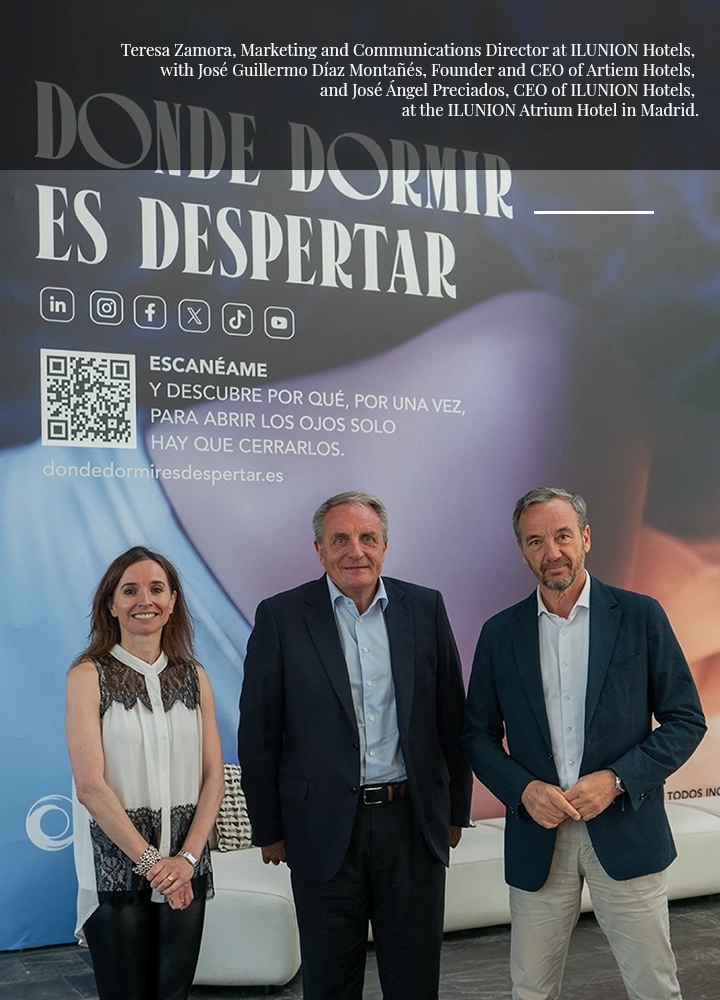
But in order to inspire others, we first had to make sure our own people were happy — so we asked ourselves what it would take to achieve that. We came to three conclusions:
- Everyone has a personal purpose. Our goal should be to help them achieve it while fulfilling the company’s purpose at the same time.
- People need to be able to be themselves at work, because otherwise, their potential is lost — their strengths outside of work aren’t brought into play within it. That disconnect is what we’re working to overcome.
- People need autonomy and responsibility. We’re moving toward a more committed approach, which is quite different from the traditionally hierarchical structure of the hospitality industry.
We’ve been working along this path for several years now, because when people feel good, the customer feels it — and ultimately, the company improves.
What challenges lie ahead for you?
Our main challenge is scaling the model, and this fundamentally depends on people — because if they don’t drive it forward, the model can’t be sustained. That’s why we need the culture to be so deeply rooted that the model can scale quickly, generating positive impact and prosperity.
Where or how would you like to see Artiem Hotels in the future?
I would like our company to inspire other businesses, to become a model that generates positive impact, prosperity — and that is also profitable. The more of us there are, the better society will be.
I want to contribute to that vision, which aligns perfectly with the B Corp philosophy: being the best company for the world, not the best company in the world.
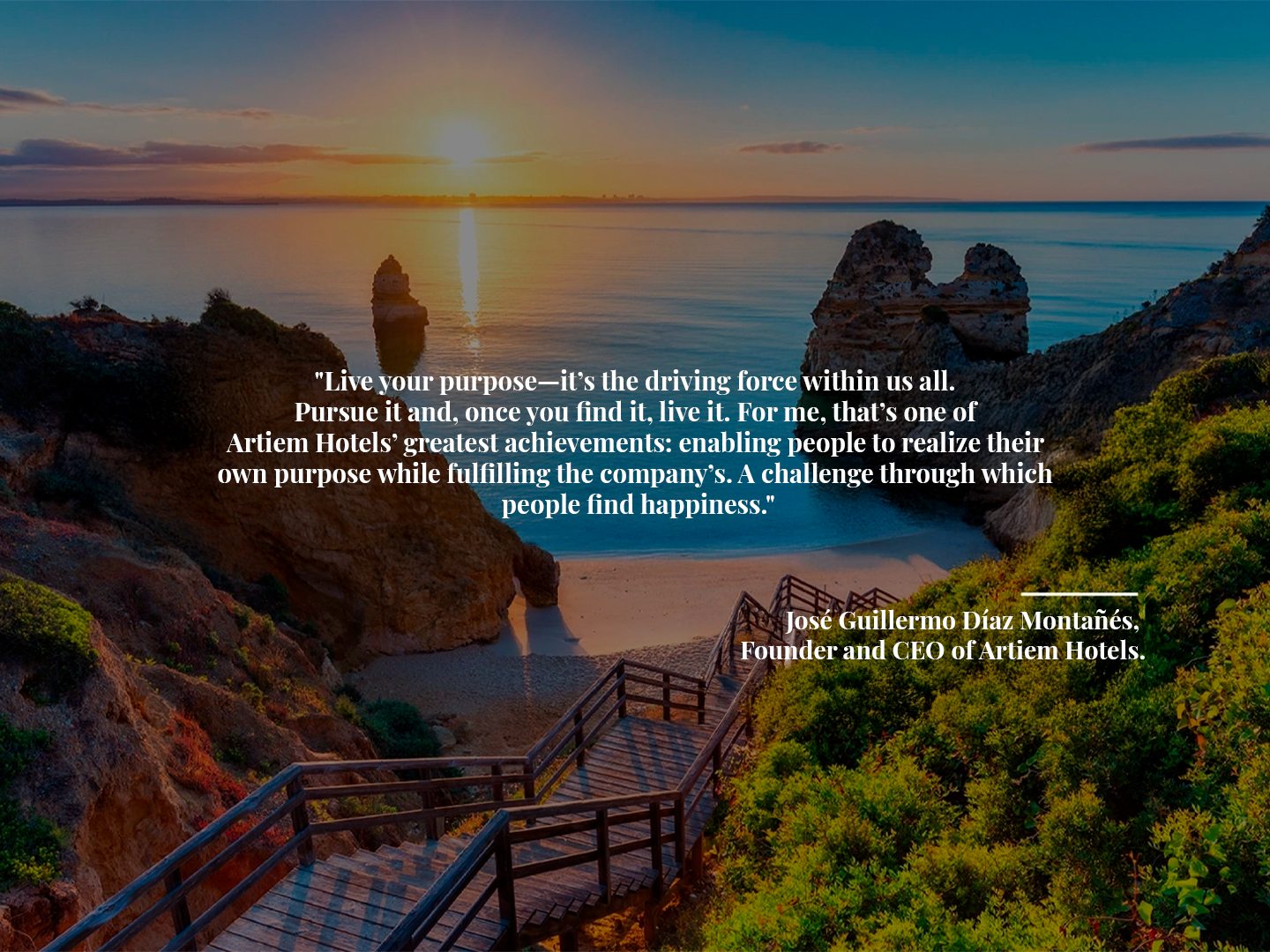
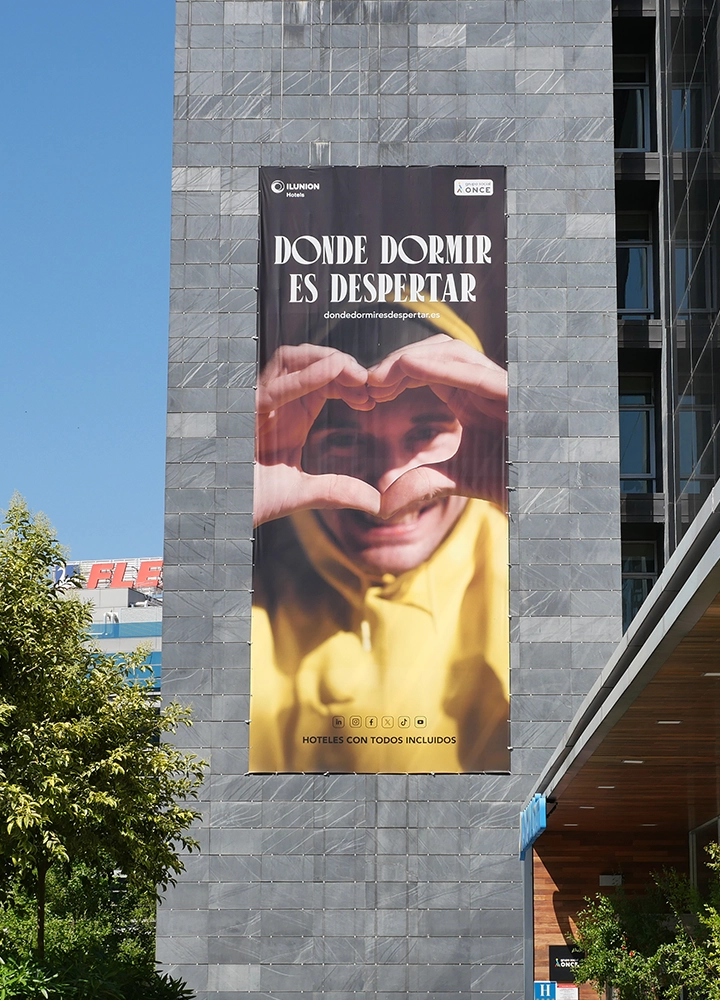
What do you think of the ILUNION Hotels model? Do you find it inspiring?
It’s an inspiring and unique model — truly one of a kind in the world. Honestly, as a citizen, I feel very proud of it. I believe you’re doing something incredible by showing that everyone has potential, and that by developing that potential, prosperity can be created.
And to finish, two requests: a THOUGHT and a LESSON you can share with us.
A THOUGHT: The more you give, the more you receive.
A LESSON: Work with the “AND”. Many times, two things that seem contradictory are not — and it’s possible to work with both. You don’t always have to choose; sometimes they’re even complementary. This forces you to think differently and break away from traditional frameworks. It’s a powerful source of innovation that leads to growth.
You at ILUNION do exactly that: you manage to combine economic profitability with social impact.